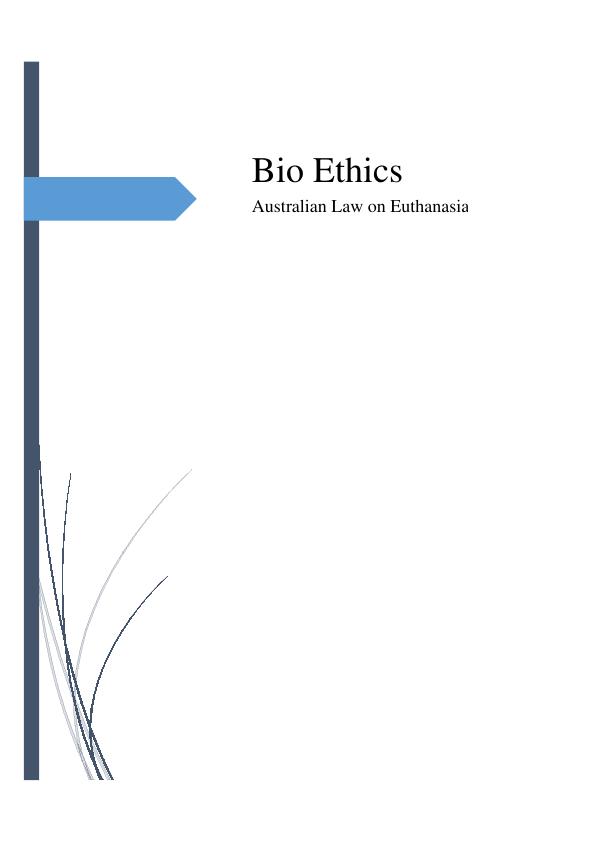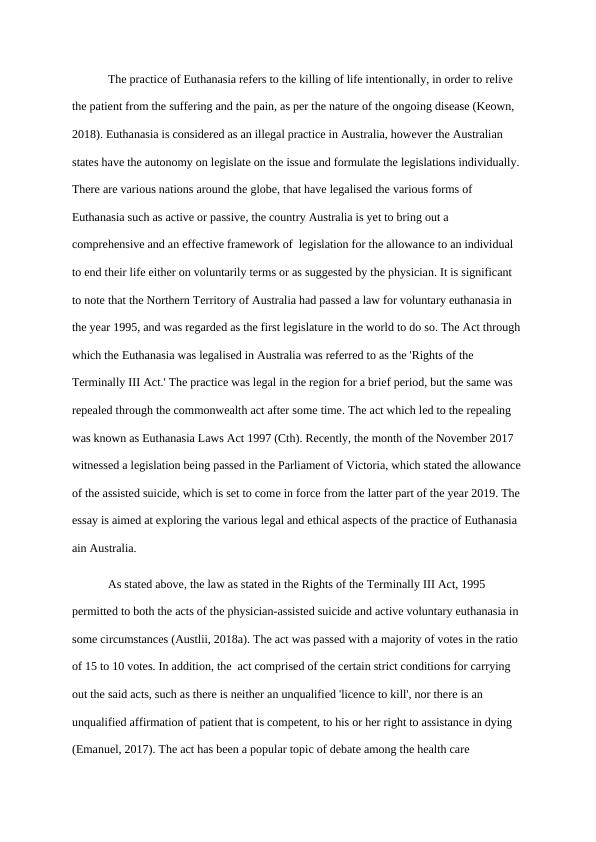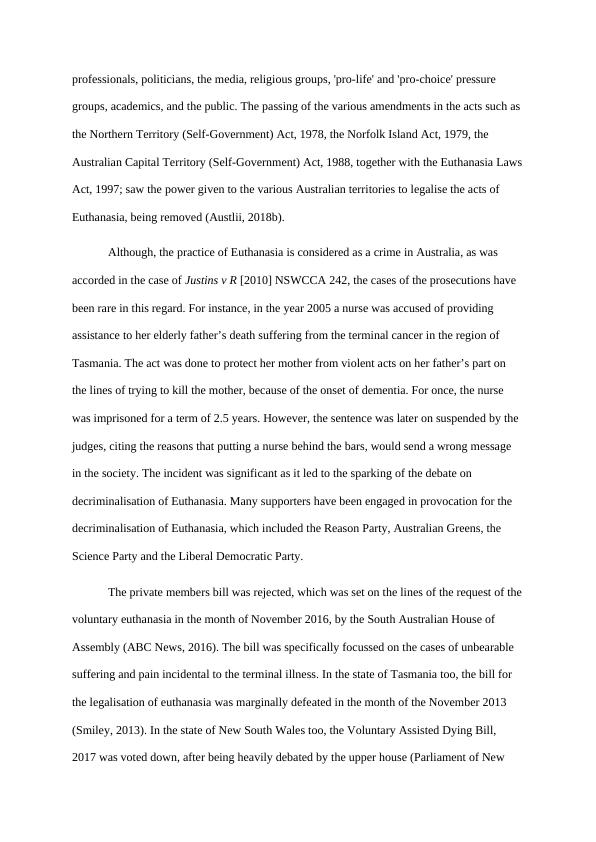Australian Law on Euthanasia - Bio Ethics
Provide an ethical critique of Australian law on either (a) abortion, or (b) euthanasia (but not both).
8 Pages2388 Words150 Views
Added on 2023-06-04
About This Document
The essay explores the legal and ethical aspects of Euthanasia in Australia. It discusses the Rights of the Terminally III Act, 1995 and the recent legislation passed in Victoria. It also delves into the application of ethical theories like utilitarianism and deontology. The essay concludes that the topic is subjected to ongoing debates and the legislation is still a year away.
Australian Law on Euthanasia - Bio Ethics
Provide an ethical critique of Australian law on either (a) abortion, or (b) euthanasia (but not both).
Added on 2023-06-04
ShareRelated Documents
End of preview
Want to access all the pages? Upload your documents or become a member.
Euthanasia: A Comprehensive Overview
|6
|2457
|365
Essay Health Law and Regulations
|9
|3499
|20



